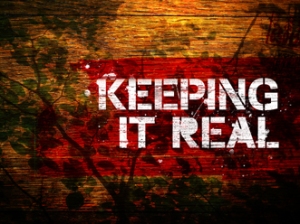 In Western contemporary society, authenticity dominates the social and cultural landscape, as suggested in declarations of ‘authentic’ cuisine and organic produce, to tourism, reality television programmes and music. The predominance of popular books published on the topic further point to an emphasis on authenticity in Western society.
In Western contemporary society, authenticity dominates the social and cultural landscape, as suggested in declarations of ‘authentic’ cuisine and organic produce, to tourism, reality television programmes and music. The predominance of popular books published on the topic further point to an emphasis on authenticity in Western society.
Authenticity is increasingly mobilised to sell us commodities as indicated by Gilmore & Pine’s (2007) Authenticity: What Consumers Really Want, while Potter warns us not to fall victim to authenticity branding in The Authenticity Hoax (Potter, 2011). The Power of Authenticity to Transform Your Life and Relationships (Robbins, 2009) and Something More: Excavating Your Authentic Self (Breathnach, 2009) provide self-help guidance on how to live a more authentic life.
Ideas about authenticity can be seen to affect identity formation, group dynamics and consumption patterns. It is arguable that this preoccupation with authenticity has become more heightened in recent years because it has been called into question.
Of course, authenticity is not just a concern for rappers. The effects of capitalism, especially the neoliberal agenda that characterises modernity, push for unremitting individualism and demand “autonomous, self-motivating, responsibilised subjects” (Gill, 2010: 241). Ongoing macro-level processes such as migration and hybridisation, transnational social movements, accelerated dynamics of capital and consumption, and rapid technological change impact everyone in modern society (Beck, 2000).
These structural conditions have notable key themes of individualism, instability and insecurity, leading to increased alienation, holding profound implications for forms of sociality (Gill, 2010). As Gilbert (2010) notes, lack of community “is the most obvious failing of competitive market society”, driving people to seek belonging and security.
The concept of ‘struggle’ captures the experiences of rappers tackling these changes in society, in addition to the contradictory feeling of both freedom and constraint.
 In the face of a growing consumerist and materialistic culture, the continuous flux of global flows, and mediated reality, a sense of inauthenticity pervades, which potentially explains why authenticity has grown in significance and meaning to people.
In the face of a growing consumerist and materialistic culture, the continuous flux of global flows, and mediated reality, a sense of inauthenticity pervades, which potentially explains why authenticity has grown in significance and meaning to people.
As such, it is arguable the UK hip hop scene represents society at large, in that its members try to make sense of a confusing and changing world whilst simultaneously trying to live out keeping it real. Negotiating authenticity can then be seen as a universal concern.